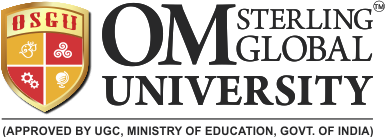Introduction to Pharmaceutical Chemistry
Pharmaceutical chemistry is at the core of modern medicine, driving the discovery, development, and optimization of therapeutic compounds. This field blends principles of chemistry and pharmacology to design drugs that are both effective and safe. As we look to the future, innovations in pharmaceutical chemistry promise to revolutionize healthcare, offering new treatments for previously incurable diseases and enhancing the efficacy and safety of existing medications.
Breakthrough Technologies in Drug Discovery
Artificial Intelligence and Machine Learning
Artificial Intelligence (AI) and Machine Learning (ML) are transforming the landscape of drug discovery. These technologies enable researchers to analyze vast datasets, identifying potential drug candidates with unprecedented speed and accuracy. AI algorithms can predict the biological activity of compounds, optimize their chemical pharmaceutical chemistry structures, and even foresee possible side effects. This not only accelerates the drug development process but also significantly reduces costs.
Explore the cutting-edge advancements in pharmaceutical chemistry with "The Future of Pharmaceutical Chemistry: Innovations Shaping and Beyond" at osgu. This comprehensive product showcases the latest innovations that are shaping the future of the industry, providing valuable insights into the advancements that will drive pharmaceutical research and development forward.
CRISPR and Gene Editing
CRISPR-Cas9 technology has opened new avenues in pharmaceutical chemistry by allowing precise modifications to DNA. This revolutionary gene-editing tool holds the promise of curing genetic disorders at their source. Researchers are now exploring CRISPR's potential to develop therapies for conditions like cystic fibrosis, sickle cell anemia, and even certain types of cancer. The ability to edit genes directly opens up a new frontier in personalized medicine, where treatments can be tailored to an individual’s genetic makeup.
Nanotechnology in Drug Delivery
Nanotechnology is another groundbreaking field impacting pharmaceutical chemistry. Nanoparticles can be engineered to deliver drugs directly to specific cells or tissues, enhancing the efficacy and reducing the side effects of treatments. This targeted delivery system is particularly beneficial in cancer therapy, where nanoparticles can deliver chemotherapy agents directly to tumor cells, sparing healthy tissues and minimizing adverse effects.
Advancements in Drug Formulation
Biodegradable Polymers
The development of biodegradable polymers has revolutionized drug delivery systems. These materials can be used to create sustained-release formulations, ensuring that drugs are released at a controlled rate over a specified period. This innovation is crucial for chronic disease management, where consistent medication levels are necessary to maintain therapeutic effects.
3D Printing of Pharmaceuticals
3D printing is emerging as a transformative technology in pharmaceutical manufacturing. It allows for the production of customized drug dosages and complex drug-release profiles. This precision enables personalized medicine, where treatments are tailored to the unique needs of individual patients. Additionally, 3D printing can streamline the production process, reducing costs and increasing accessibility.
Read more: B.Voc in Medical Lab Technology: Unlocking Career Opportunities in Healthcare Diagnostics at OSGU
Emerging Trends in Pharmaceutical Research
Biologics and Biosimilars
Biologics are complex drugs derived from living organisms, offering targeted treatments for various diseases, including autoimmune disorders and cancers. The development of biosimilars—highly similar versions of approved biologics—promises to reduce healthcare costs while maintaining therapeutic efficacy. The rise of biologics and biosimilars represents a significant shift in pharmaceutical chemistry, emphasizing the importance of biological processes in drug development.
Personalized Medicine
Personalized medicine is becoming a reality, thanks to advancements in genomics and biotechnology. By understanding the genetic basis of diseases, researchers can develop tailored treatments that are more effective and have fewer side effects. This approach marks a departure from the one-size-fits-all model of traditional medicine, offering hope for more precise and effective therapies.
Immunotherapy
Immunotherapy harnesses the power of the immune system to fight diseases, particularly cancer. Innovations in this field include checkpoint inhibitors, CAR-T cell therapy, and cancer vaccines. These therapies are transforming cancer treatment, offering new hope to patients who have exhausted conventional options. The ongoing research in immunotherapy is a testament to the dynamic nature of pharmaceutical chemistry and its potential to revolutionize healthcare.
Regulatory and Ethical Considerations
Regulatory Challenges
As pharmaceutical chemistry advances, regulatory frameworks must evolve to keep pace. The rapid development of new technologies like gene editing and nanotechnology poses unique regulatory challenges. Ensuring the safety and efficacy of these novel therapies requires rigorous testing and oversight. Regulatory bodies worldwide are working to adapt their guidelines to accommodate these innovations while protecting public health.
Ethical Implications
The ethical implications of emerging technologies in pharmaceutical chemistry cannot be overlooked. Gene editing, for example, raises questions about the potential for unintended consequences and the ethical considerations of altering human DNA. Similarly, the use of AI in drug development necessitates discussions about data privacy and the potential for bias in algorithmic decision-making. Addressing these ethical concerns is crucial to ensuring that advancements in pharmaceutical chemistry benefit all of society.
Conclusion
The future of pharmaceutical chemistry is bright, with innovations poised to transform healthcare and improve the lives of millions. From OSGU AI-driven drug discovery to personalized medicine, the possibilities are vast and exciting. As we continue to explore these advancements, it is essential to balance innovation with regulatory and ethical considerations, ensuring that the benefits of pharmaceutical chemistry are realized safely and equitably.

